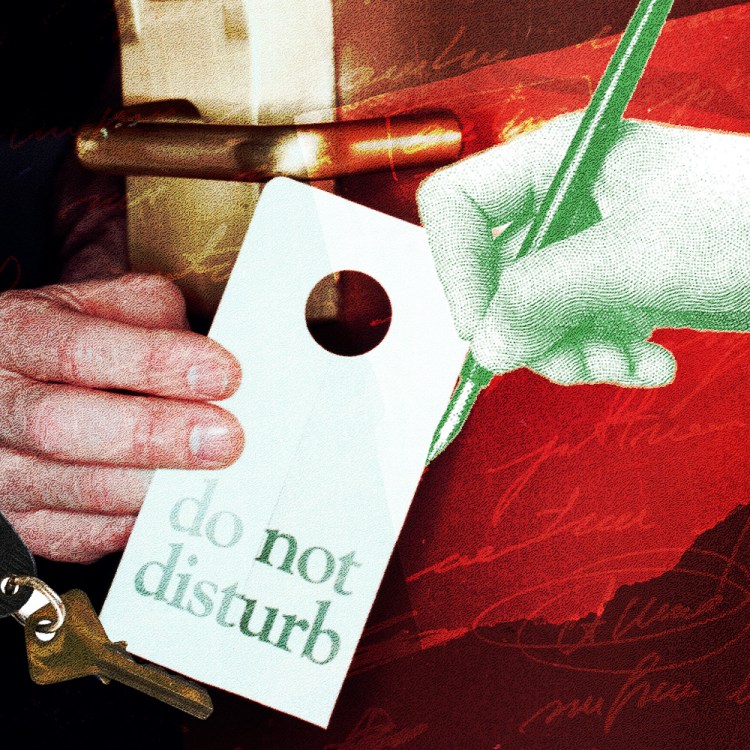It’s somewhat uncomfortably meta for me to be writing about task paralysis in an article, considering the fact that (like most writers) I experience an acute version of the “freeze response” every time I have to draft an article.
But I’m going to soldier through it for all of you, because this is serious stuff — the psychological phenomenon is more common than most people realize, and has a nasty tendency of torpedoing individuals’ productivity, mental health and self-confidence.
What Is Task Paralysis?
Task paralysis refers to an overwhelming inability to begin tackling a task. While not studied as a standalone condition in psychological research, it has close ties to anxiety and depression, and is a classic struggle for those who suffer from ADHD.
Beyond my writer’s block example (I also encounter it whenever I have to fold a mountain of fresh laundry), there are endless ways that task paralysis may manifest in your life. Plus — the phenomenon can arrive as either a response to one intimidating task or a bundle of many related ones. Here are some tasks that people tend to kick down the road:
- Starting a work project with a far-off deadline
- Decluttering your sink/bedroom/desk, etc.
- Sitting down to work through your recent expenses
- Beginning outreach for a new job
A Guide to the Best Life Hacks From the Last 100 Years
Miracle mornings, presidential matrixes and more. These approaches can actually change your life.Some of Us Are More Susceptible
As mentioned, task paralysis disproportionately affects those with ADHD. That’s because those dealing with the disorder can’t rely on the performance of their brain’s prefrontal cortex. (That’s the region responsible for decision-making and self-control. When it isn’t functioning properly, some researchers have likened the lived experience to driving into intersections with no stop signs or traffic lights…all day, every day.)
That said, anyone’s prefrontal cortex can be hijacked and disrupted during a period of stress — thus shifting regulatory duties to the emotionally charged and unreliable amygdala. Here are some other personalities and environments that often encounter or trigger task paralysis:
- Procrastinators: Unsurprisingly, a tendency towards procrastination is closely tied to task paralysis. If you’re used to giving yourself tiny, distractive rewards before you start (or get back to) a task, it gets harder to ever really honor that task.
- Perfectionists: Still, procrastinators aren’t all lazy bums — many of them put off tasks because the expectations they set for themselves are extremely high. They tend to “over-identify with their performance,” and the prospect of needing to achieve something perfect (the perfect article, the perfect workout, the perfect job) is immobilizing.
- High-stress workers: These are people who work in workplaces (or operate in households, for that matter), where demands are sky-high. (The expectation for perfection may be coming from somewhere else.) Deep down, you know your best shot of meeting those expectations is by taking that first step ASAP, but it’s easier said than done.
- Extremely online adults: This would seem to describe just about all of us these days. The constant stimuli of social media, email and work channels is an extra curveball for anyone who has trouble starting a task. One survey a few years back found that the typical “knowledge worker” can’t go six minutes without checking a platform like Gmail, Slack or Microsoft Teams. (I’ve personally replied to several emails — and read an article about Shohei Ohtani! — since starting this article. Oh well.)
Know Your Signs
If task paralysis has one thing going for it, it’s that it’s very recognizable. It’s the third, phantom “F” in the quintessential stress response (fight, flight, or freeze). When you feel like you can’t possibly begin to start something…you know it. So, for starters, make a point to recognize and appreciate those warning signs for what they are.
Are you procrastinating way more than normal? Engaging in negative self-talk? Feeling fatigued, or extra-anxious, or somewhat nauseous? Hit the pause button. Take some deep breaths. Run some diagnostics — does the task need to be completed today? Or by the end of the month? Either way, what is the first, smallest step you can do right now? One of the oddest qualities of task paralysis is that actually doing that task (and yes, chewing into the very first step counts as “doing it”) is generally less stressful or onerous than all the desperate buzzing around we do to avoid it.
What Can You Do About It?
Based on the nature of the task, you can try employing a range of prioritization and productivity techniques. I did a deep dive on my favorites here last year. For instance: if you’re stressing about writing an article or folding laundry, you might whip out Mel Robbins’ 5-Second Rule.
You simply count down from five…four…three…two…one, and then go. Like a rocket ship — which was Robbins’ original inspiration. She devised the concept at a time when her life was crumbling apart and she was having trouble getting out of bed. This rule helped her commit to her alarm and get her life back on track. I find it works for things that objectively need to be handled that hour, or that day. Don’t chuck your rumpled laundry on the chair in the corner!
While you’re performing these sorts of tasks, you need — and deserve — the space to focus. If it’s a chore, put in earbuds to listen to a podcast or space out. If it’s “knowledge work,” set aside a block of time, Pomodoro-style, in which the entirety of your attention is zeroed on beginning and completing something on that screen. You’ll be shocked at how little time it actually takes you.
If you’re fretting over something way more important (or long-term), you might lean on WOOP Goal-Setting, The Eisenhower Matrix or whatever DIY method you’ve found useful over your years of school and career. The throughlines tend to be the same — establish a goal, a timeline and a priority ranking, and most importantly, an understanding that the project will take you to unanticipated places, in challenging ways. Perfection is a construct…and the perfect way to make any project harder than it needs to be.
The Charge will help you move better, think clearer and stay in the game longer. Subscribe to our wellness newsletter today.




















